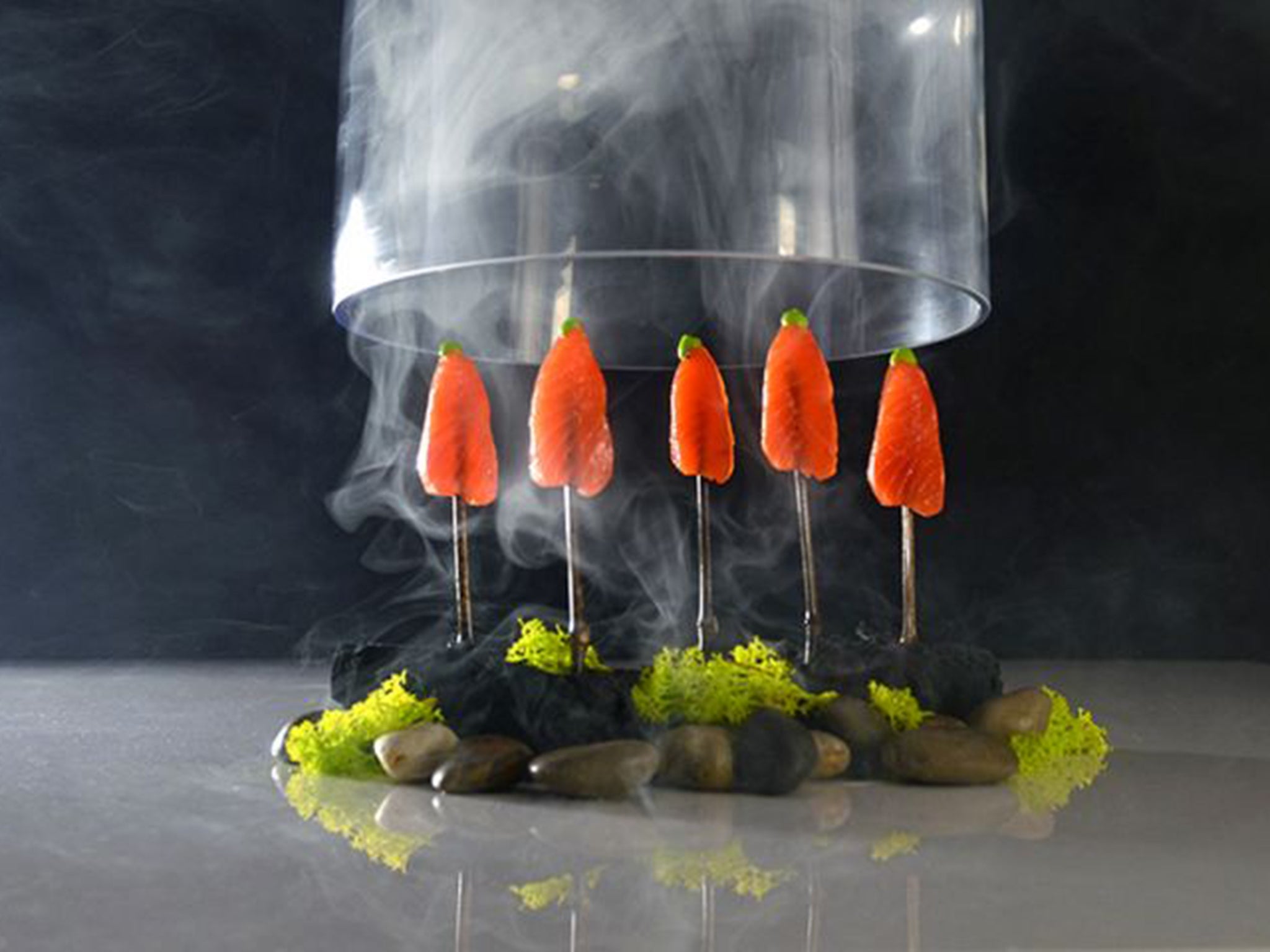The World's Most Expensive Food, TV review: A £10,000 dinner party which proved money can’t buy you taste
Tonight's episode of the Channel 4 series focused on London-based outfit "Bubble Food", which specialises in sub-Hestonian exercises in silliness, but without the wit and charm of the original

Obscenity takes many forms, but few quite as repulsive as the food porn jauntily exposed in The World's Most Expensive Food, Channel 4's new series about the tastes of the new global mega-rich. Or at least as evidenced by the activities of a London-based outfit called "Bubble Food", presumably with no hint of irony about the property and other bubbles that have created the fortunes of so many of the billionaires they cater to. Described as "pioneers of molecular gastronomy", they seem to specialise in sub-Hestonian exercises in silliness, but without the wit and charm of the original. Thus, they made up a foodie game for a £10,000 dinner party in which truffles had to be "hunted" in a tray of leaves, with the guests, it was proposed, wearing headphones with piggy noises coming through, just to add that bit of ironic edge to the proceedings.
After all, when many thousands are suffering from food poverty, when fresh food "deserts" exist on housing estates, when Aldi and Lidl have secured 10 per cent of the UK groceries market because cash-strapped households have to put value first, and when food banks are growing faster than real banks, the idea of people celebrating their own pigginess is deeply unpleasant, and it does make for a difficult watch for that reason. I'm no miserablist, and I enjoy a glass of cava as much as the next party animal, but someone paying out £1,400 a kilo for "escargot pearls" is also pretty stomach-churning stuff. A rare case, this dinner party, of swine before pearls.
Of course, what we are talking about here is snail's eggs, albeit the farmed, pampered and clinically clean edible variety, rather than the tearabouts in your back garden, but snails all the same. Gastropods for gastronomes, I suppose. But the culinary qualities of these "pearls" are secondary. As with the "woodland" truffle-hunting box, the attraction of serving up snails' eggs is that your guests will be sure to discover how much all of this novel nonsense costs, and realise that, even if they had the money, they are so behind food trends among the billionaire class that they will still feel suitably demeaned. Nice.
The thing missing from the Channel 4 show was a bit of, dare I say it, Thorstein Veblen. One of the least-known but greatest works of economics is The Theory of the Leisure Class by Veblen, published in 1899, as the Belle époque was getting stuck into its own excesses. It was Veblen who formalised the idea that the demand for certain goods – luxury motor cars, jewellery, yachts and, yes, "snail caviar", actually increases as their prices go up, the reverse of the usual laws of economics. Mercifully, money cannot buy good taste. Well, that's what I tell myself anyway as I clamber into the Skoda on my way to Lidl to buy some cava.
Which, as they say on TV, just leaves me time to mention what deserves to be the hit of the moment – First Dates. If you haven't yet encountered it, you need to know that it is about couples out for a meal on a genuine blind date, with their dialogue captured for your voyeuristic pleasure, and it is compelling stuff. Tonight, unusually, we also eavesdropped on an older couple, and an emotionally charged experience it was. And, in case any of the world's richest people are reading this, I can't resist mentioning that money can't buy you love. So there.
Join our commenting forum
Join thought-provoking conversations, follow other Independent readers and see their replies
Comments